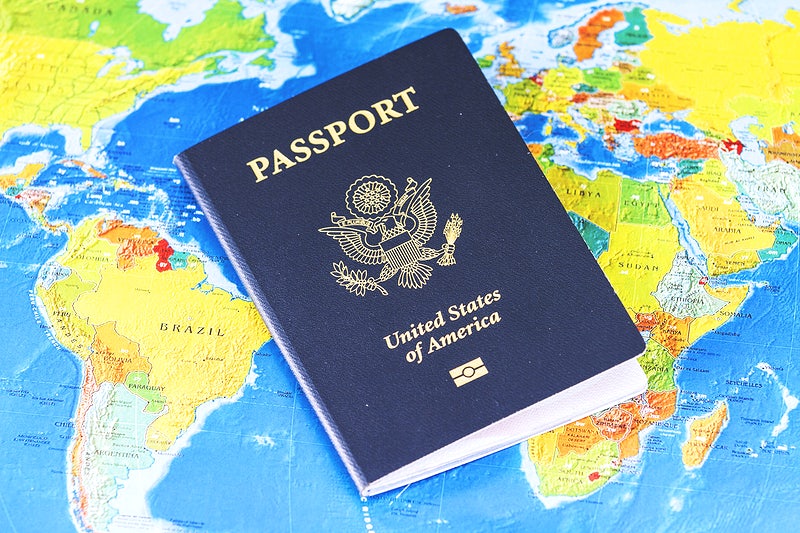Over the past few decades, many western countries have adopted naturalization laws that have streamlined citizenship processes.
As a result, many westerners moving overseas sometimes don't fully understand how difficult it can be to naturalize in their new home. As a result, Crown Relocations has identified four of the toughest naturalization processes below alongside some helpful information about other avenues available to you plan on staying indefinitely:
Chinese (PRC) citizenship
The Nationality Law of the People’s Republic of China allows foreigners to try to become naturalized citizens if they have relatives who Chinese citizens, have settled in China, or “have other legitimate reasons.”
The reality is, however, that if you don’t have a relative who’s a Chinese citizen and lives in China, your chances of becoming a Chinese citizen are slim to none. According to the CIA World Factbook; while naturalization is possible, it is extremely difficult.
Long-term residency is required but not specified. Since the establishment of the People’s Republic, citizenship has only been handed to a select few hundred “exceptional” foreigners.
Although this makes attaining citizenship in China sound almost impossible, there are alternatives. If you’re relocating for work, a Chinese work visa or Z visa is your best bet. This is issued to foreigners who are going to China for a paid job offer.
The Z visa itself only allows a stay duration of 30 days from the date of arrival, during this time it is suggested by Travel China Guide that you and your employer must seek a temporary residence permit for the duration of your contract. This potentially allows you to stay a minimum of 90 days to a maximum of 5 years. Essentially, you need to ask your employer to provide you with a work permit then, you can apply for a work Z type visa from the embassy in your country.

U.S. Citizenship

Becoming a U.S. citizen is a lengthy process, but it is attainable. The naturalization process is made up of several moving parts that will influence the best strategy for individuals to obtain citizenship. This is a process so complex that an entire cottage industry of lawyers has sprung up around it, so let’s break it down.
To become a U.S. citizen, you must have had a Permanent Resident (Green) Card for at least five years, or for at least three years if you’re filling as the spouse of a U.S. citizen.
To obtain a Green Card there are essential requests you must meet. One being you must be at least 18 years old and have this card for at least five years. A green card lasts 10 years (even though it says “permanent” on the card itself).
There are many things that can help you get a Green Card. For instance, being related to a U.S. citizen, as a spouse, unmarried child under 21 or parent if the citizen is over 21. Another tip is to ask your U.S. employer to put in a good word. Also, being employed as a broadcaster, doctor, religious worker, or work for an international organization can boost your hopes of getting a Green Card.
Qatari Citizenship
There are many requirements to even be considered for a Qatar citizenship; it truly is one of the toughest places to naturalize. In fact, Qatar living suggests that gaining Qatari citizenship can be difficult even if you are of Qatari descent.
Business insider U.K. explains that if your father is not Qatari, then neither are you, even if your mother is. If you have been a legal resident of Qatar for 25 years without leaving the country for more than two consecutive months (among other requirements), you can apply for citizenship. To put this in perspective, the Doha News reported that Qatar only naturalizes about 50 foreigners a year.
However, naturalized citizens are not treated the same way under the law as citizens born in Qatar, likely because the country provides very generous government benefits that would be costly to extend to all citizens.
However, you may find your luck in applying for a work visa - which is no easy task. You must find a sponsor, i.e. a local employer wishing to hire you. The sponsor initiates the work visa application by requesting all legal authorizations to a hire foreign worker to the ministry of interior of Qatar. The sponsor has a fundamental role to play since they must vouch for you for situations such as when you open a bank account, or you sign a rental lease in the country.

UAE/Emirate Citizenship

Despite there being more expatriates than native Emiratis, the UAE will only allow you to apply for citizenship if you have legally resided in the Emirates for 30 years.
Becoming a UAE citizen is therefore difficult for a foreigner, and whether it’s possible for you will depend on a variety of circumstances. Your options are also affected by factors such as whether you work, who your employer is. As with all of these countries, it’s worth talking to a local immigration lawyer to assess your options.
Federal Law No.17 states that if you are an Arab citizen from Oman, Qatar, or Bahrain, you can apply for naturalization after three years of residency. However, Arabs from other countries are eligible after seven years of residency in the UAE.
Currently, women with UAE citizenship married to foreign men cannot pass it to their children, according to a UN report. A 2011 decree allows those children to apply for citizenship when they reach age 18.
If you can’t claim citizenship through any of these routes, then seeking it based on your residence is the most likely option. However, as mentioned you must live and work in the UAE continuously for up to 30 years.
If you are interested in understanding more about your options to become a UAE citizen, it’s worth talking to an immigration lawyer who can offer personalized advice based on your situation.
Remember that even if citizenship is tough, most of these countries have streamlined processes for work visas and, increasingly, long-term residency.
Update as of 2021: In January 2021 the government of the United Arab Emirates announced that they would break with prior policy and allow "special classes of foreigners, along with their spouses and children, to obtain Emirati nationality".
These "special classes" include investors, doctors, inventors and other in-demand professions, but even then the government of the UAE asks that applicants be "highly specialized" in fields that there is a market for. In other words, the process is liberalized but only for the upper echelons of highly-skilled workers.
Where else is strict?
Looking within the European Union, there has been an increasing drive to harmonize naturalization processes, with some even floating the idea of an "autonomous EU citizenship".
However, many member states still have strict laws. Austria for example requires 10 years following permanent residency of continuous residence to apply for citizenship.
Further afield in Japan, an unusual quirk means citizenship can be applied for before you reach permanent residency requirements.
However, applicants must (similar to Austria, Germany and many other countries) renounce any other nationalities. Japanese naturalization is also infamously difficult from a bureaucratic point of view, and the process for completing all of the relevant paperwork can run anywhere from six months to several years.